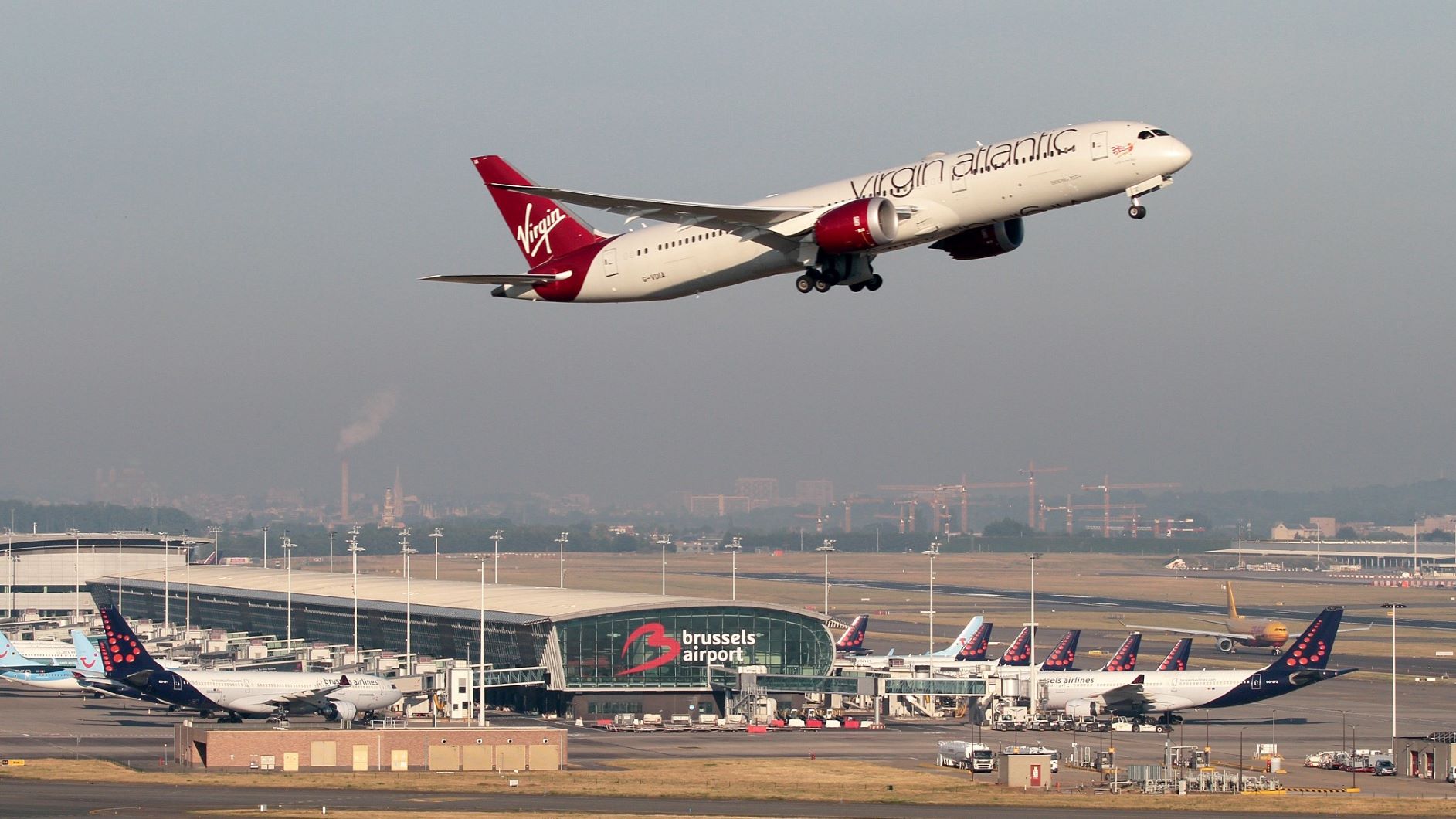
A huge flow of all-cargo aircraft flown by independent operators combined with heightened activity from integrated logistics providers UPS and DHL, pushed Brussels Airport’s cargo volume into positive territory in June after three months of steep declines caused by the coronavirus pandemic.
It’s a positive sign for a hub airport that normally depends on passenger traffic.
Brussels Airport Co., which operates the airport, reported Wednesday that cargo volume increased 4.8% in June, year-over-year, despite a 91% drop in cargo volume carried on passenger aircraft. Most large passenger airports that also serve as international cargo hubs have been deluged by freighter traffic, but it has not been enough to offset the loss of shipments carried in the bellies of passenger aircraft grounded by COVID travel restrictions.
Freighter volume in June jumped 71.5% above the June 2019 level, while volumes from express carriers/integrators grew 29.5%, according to figures from the airport. It handled 1,738 cargo flights, a 46% increase, while passenger moves fell 94% from 18,107 to 1,146.
First half results showed a 4.6% drop in cargo volume to 235,729 tons, with belly cargo tonnage down 50.7%, freighter tonnage up 27% and integrator volume up 9.7%.
Airport officials said heavy demand for personal protective equipment and other coronavirus supplies led to a huge surge in freighter operations, including from airlines that never before flew there and passenger planes temporarily converted to fly dedicated cargo services.
New airlines that have called at Brussels Airport since the start of the pandemic include Miami-based all-cargo carrier Amerijet, Silk Way Airlines and Virgin Atlantic.
Express carriers UPS and DHL are integrated logistics companies that run their own airlines and control the shipments that ride on board.
Amsterdam Schiphol Airport earlier reported a 13% decline in June cargo tonnage despite a 124% increase in full freighter flights (2,473), with volume down 14.5% to 656,000 tons for the first half of 2020. The Hong Kong Airport Authority said cargo throughput decreased 7.7% to 357,000 tons in June versus 2019 primarily due to the decline in transshipments from reduced belly capacity on passenger flights.
“One of the strengths at Brussels Airport was the sense to tackle the rapid capacity reduction from a community standpoint. Different parties worked together reaching out to their network to get the traffic flows moving. This coordination and active facilitation between shippers, forwarders, handlers, customs and airlines truly made a difference and was already part of our earlier success. In these times of crisis, we could even leverage this with these volumes as a result” said Steven Polmans, director cargo and logistics at Brussels Airport Co., in a statement.
Polmans this month announced he will resign his position at the end of 2020 after 10 years with the airport operator.
Officials said the highest import growth came from Africa and Asia, with export volumes mainly growing towards Asia and North America. Export to Africa is still below pre-Covid levels due to the grounding of home carrier Brussels Airlines, but is slowly recovering as more and more carriers resume flying.
The airport said it has continued to work on infrastructure upgrades and is currently working on a runway renovation. Construction will have a marginal impact on freighter movements during the six-week project, it said.
Click here for more FreightWaves/American Shipper stories from Eric Kulisch.
@ericreports / LinkedIn: Eric Kulisch / ekulisch@freightwaves.com
RECOMMENDED READING:
Air Canada cargo chief to head freighter operator Amerijet
Airlines grew 1H cargo revenues despite drop in volumes
KLM gets EU blessing for Dutch emergency aid

